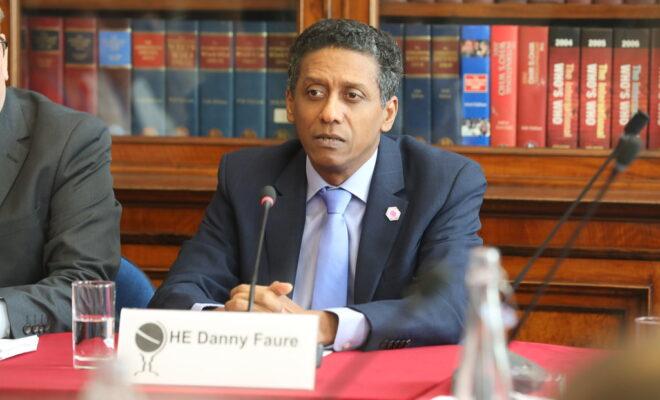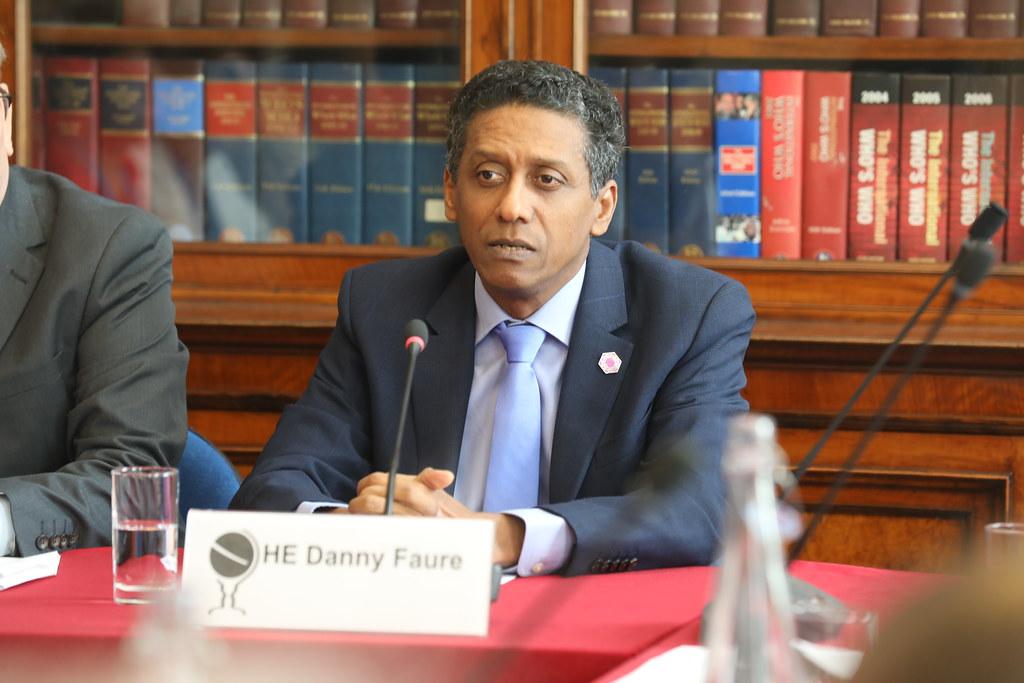Seychelles elections: Just 193 votes decided it last time

But since 2016’s contested elections, 17 electoral amendments have been approved to hopefully make this year’s vote more free, fair and transparent.

Will incumbent Danny Faure be re-elected in the Seychelles elections? Credit: Chatham House.
The Seychelles takes to the polls on 22-24 October this week for its presidential and legislative elections. The elections are running concurrently in order to save money. This is because the COVID-19 pandemic has taken a toll on the tourism-based economy since the Seychelles closed its borders in March and only began phased re-opening in June.
In accordance with guidelines recently developed by the southern African bloc SADC, pre-election consultations by observer groups were conducted virtually in August. The post-election analysis will also be virtual.
There are three candidates in the running for the top seat. Incumbent Danny Faure, in power since 2016, represents the ruling United Seychelles Party. His main rival Wavel Ramkalawan, running for the sixth time, is from the Seychelles Democratic Union. And Alain St Ange is from the One Seychelles Party.
The United Seychelles Party has been in power since 1977 in various incarnations. It maintained victory at the polls even after the electoral system was democratised in 1993. The opposition Seychelles Democratic Union, however, has increased in popularity, winning a parliamentary majority for the first time in 2016. Based on the last election, the candidates from the United Seychelles Party and Seychelles Democratic Union are evenly matched.
In his campaigns, President Faure has focused on the economy (especially the rebuilding of national reserves), reducing partisanship in politics, and representing people from all walks of life. Ramkalawan has been equally focused on the economy and has committed to boosting the local economy should he win. St Ange has pledged to decriminalise marijuana and install a technocratic government.
Election track record
Since the Seychelles transition from a one-party state to an electoral democracy in 1993, it has done fairly well in adhering to the principles of free and fair elections. It has conducted five multiparty presidential and legislative elections that observers have consistently praised for being generally credible, transparent and peaceful. Barring some allegations of corruption, it has shown rapid improvement thanks to a strengthened anti-corruption legislative framework.
However, in the last elections in 2015/2016, the Seychellois Electoral Commission faced criticism for being inconsistent in enforcing its mandate. There were allegations of attempted vote buying, lack of efficiency in the electoral system, and limited civic education on voter registration and other voting procedures. There were also concerns about definitions of the terms “votes cast”, “valid votes cast” and “spoiled ballot paper”.
This lack of clarity muddied the results of one of the most closely fought presidential elections in Seychelles’ history. Only 193 votes separated the two leading candidates following a second-round runoff. James Michel won 50.15% to Ramkalawan’s 49.85%. The closeness of the result, accusations of irregularities, and Ramkalawan’s allegations of vote buying prompted a review of the country’s electoral framework. Michel later resigned and Faure took over.
In reviewing the framework, the commission consulted political parties and civil society. This was based on the African Union’s suggestion for more transparency in the system. It presented its reforms recommendations in 2017. Based on those recommendations, the National Assembly approved 17 amendments to the Election Act in August 2020.
The 2020 polls
As the Seychellois people go to the ballot this week, it is worth mentioning that historically, the youth vote has not been actively sought. This is despite campaign promises to include young people in matters of governance. The youth are considered to be the “most important and dynamic segment of the population”. Yet they have shown relatively little interest in exercising their right to vote.
Women are also not as active in the country’s politics as they could be. Women’s representation in the Seychellois parliament dropped from 43.75% in 2011 to 21% in 2019. This is below the 23% world average. Moreover, in the history of the Seychelles, only one woman – Alexia Amesbury – has contested a presidential election. The absence of female representation is a worrying trend because it means less participation across all levels of decision-making. There needs to be more discussion on longstanding traditional beliefs about the role of women in leadership. Despite the Seychelles’ general appearance as a matrifocal society, when it comes to political leadership, women are often perceived as having been promoted through the benevolence of a male presidency.
Away from the limited representation of women and the youth, there is nothing to suggest that the coming elections will not be free and fair. What remains to be seen is how the virtual election observation will play out in upholding the credibility of the process.
Nevertheless, even with the above points of contention, the electoral management body appears to be playing its role fairly well. And the amendments to the electoral laws are an indication that the Seychellois government is intent on upholding the principles of electoral procedure and practice that it has committed to.![]()
This article is republished from The Conversation under a Creative Commons license. Read the original article.





